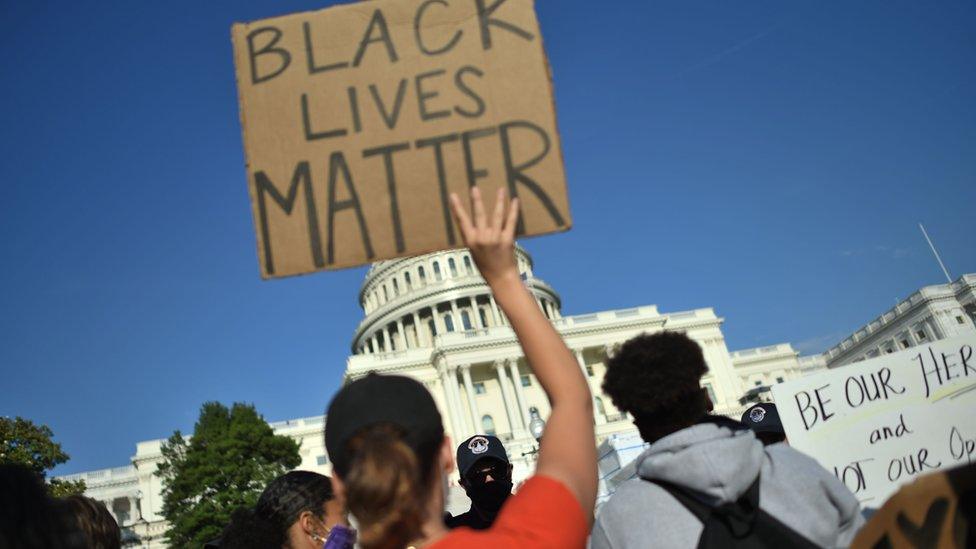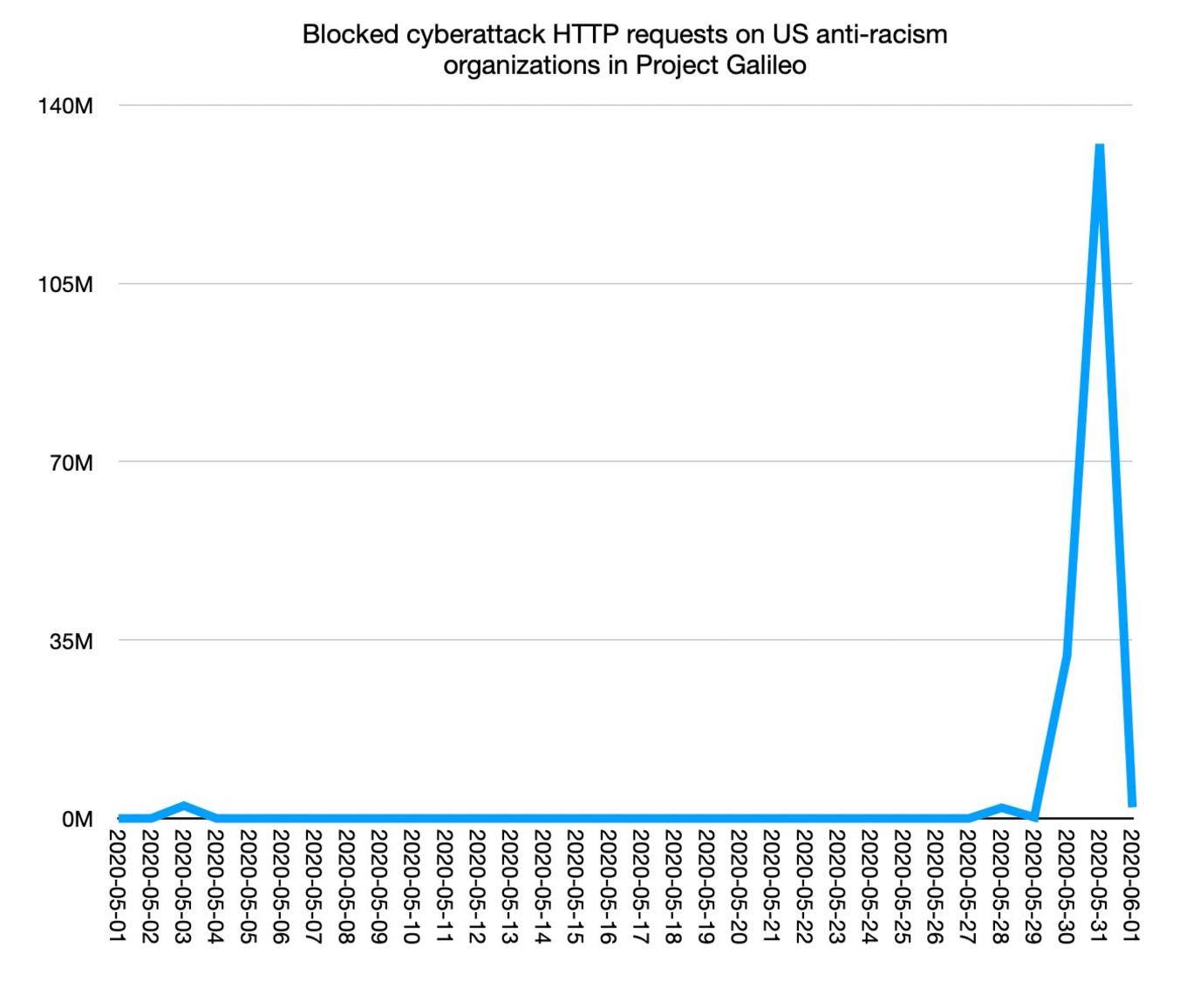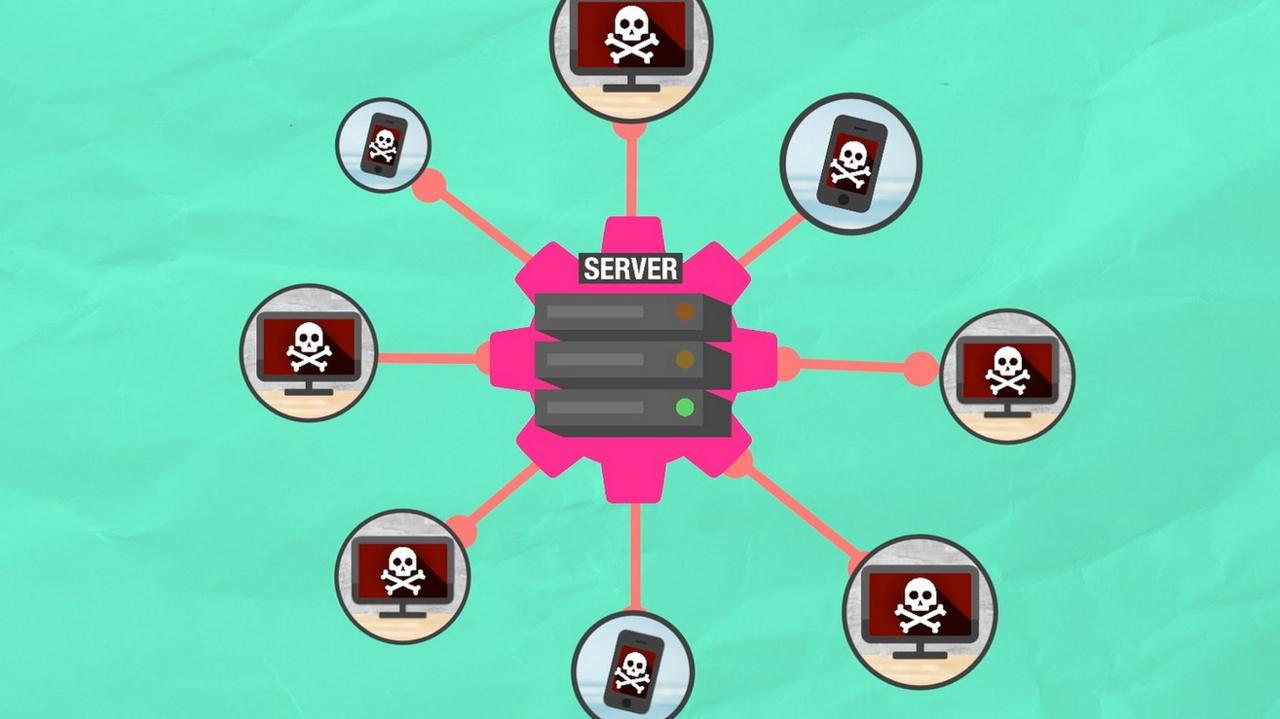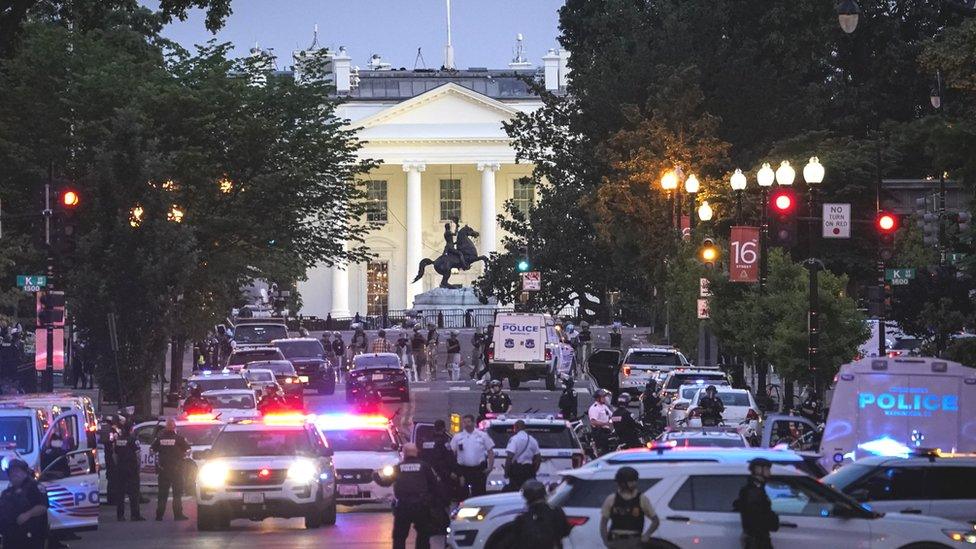George Floyd death: Anti-racism sites hit by wave of cyber-attacks
- Published

Cyber-attacks against anti-racism organisations shot up in the wake of the death of George Floyd, a leading provider of protection services says.
Cloudflare, which blocks attacks designed to knock websites offline, says advocacy groups in general saw attacks increase 1,120-fold.
Mr Floyd's death, in police custody, has sparked nationwide civil unrest in the US.
Government and military websites also saw a notable increase in attacks.
DDoS attacks - short for Distributed Denial of Service - are a relatively simple cyber-attack tool, in which the attacker tries to flood a website or other online service with so many fake "users" that it cannot cope.
The effect is that it gets knocked offline for people trying to access information or services.
EXPLAINED: What is a DDoS attack?
Cloudflare says that after Mr Floyd's death and the ensuing violent clashes between police and protesters, it saw a noticeable jump in the amount of requests it blocked - an extra 19 billion (17%) from the corresponding weekend the previous month.
That equates to an extra 110,000 blocked requests every second, it said.
The problem was particularly acute for certain types of organisations. One single website belonging to an unnamed advocacy group dealt with 20,000 requests a second.
Anti-racism groups which belong to Cloudflare's free programme for at-risk organisations saw a large surge in the past week, from near-zero to more than 120 million blocked requests.

Attacks on government and military websites were also up - by 1.8 and 3.8 times respectively.
It follows a sudden swell of interest in the "hacktivist" collective Anonymous, which has said it will support the protesters, and threatened to target the police in the city of Minneapolis, where George Floyd was killed. The group has often used DDoS attacks in the past.
Cloudflare, meanwhile, invited at-risk groups to join its free protection programme.
"As we've often seen in the past, real world protest and violence is usually accompanied by attacks on the internet," Cloudflare said in a blog post written by its chief executive and chief technology officer, external.
"Unfortunately, if recent history is any guide, those who speak out against oppression will continue to face cyber-attacks that attempt to silence them."
- Published7 March 2016

- Published3 June 2020

- Published2 June 2020

- Published2 June 2020
